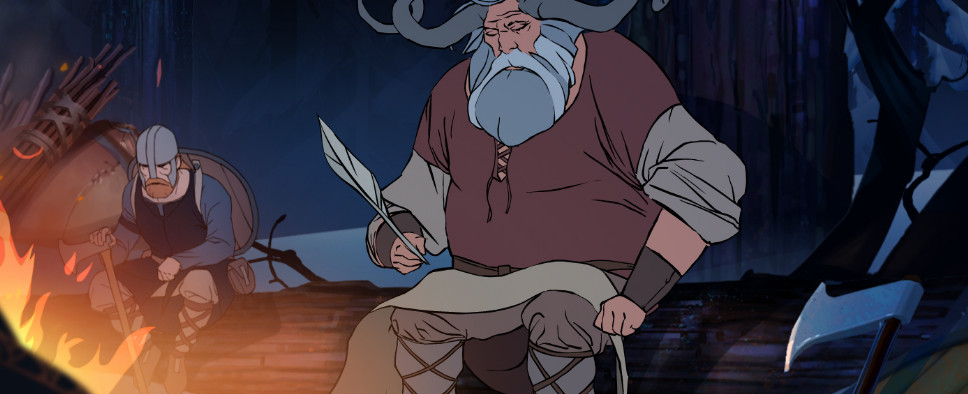How Composer Austin Wintory Brought Stoic Beauty to The Banner Saga
-
Category: News ArchiveHits: 1449

GameSpot has an interesting feature on The Banner Saga's soundtrack, with excerpts from the composer himself, Austin Wintory (Journey, Monaco). As someone who has rather enjoyed the game's soundtrack, I appreciate the insight:
I caught up with Wintory recently in the hopes of picking his brain, to better understand his composition process, and to discover what lights his creative fires. It's difficult to analyze innate talent, but creativity involves more than just inspiration; it's not as if the muses upload everything you must know into your brain and all you need to do is spit forth the results. I asked him what musical ideas he conjured in order to communicate non-musical concepts like "cold" and "bleak," and his answer surprised me.
"It's never an overt process," he told me. "I didn't try to write 'cold' music; I just try to let the game crawl under my skin, and however it makes me feel is then what I try to write. Fortunately the game really made me feel cold and bleak, so channeling that was simple. As for orchestration, I started off writing in a vaguely orchestral way, but brass very quickly seemed to take center stage. Something about horn solos felt simultaneously regal and noble, but also lonesome and vulnerable. The game needed to have both. A warrior's saddest days. Not pitiful but definitely very introspective. Pretty shortly I realized I was practically ignoring the strings, so I decided it'd be interesting to cut them completely and go for wind ensemble. Doing that felt immediately right!"
It's this emphasis on brass and winds that makes tracks like A Long Walk Stills Our Hearts all the more poignant. The solo violin, often finishing phrases on open fifths, is the most heartbreaking sound in a score that already instills a sense of vulnerability. A vocal melody adds some warmth to the track, but when it's over, I feel lost. But I also note as I listen that these are live instruments. Just as I could hear the bassoon's physical keys as its player navigated Wintory's score, I could also hear the violinist's fingerings. This was not synthesized music. These were real instruments played by real people, not as common an occurrence in video game scores as you might suppose.
Wintory was pleased that Stoic Studio gave him the resources to hire such a talented group of musicians. "Not every game has a runaway Kickstarter like this one did, so there was no holding back," Wintory told me. "The recording budget actually exceeded Journey! The wind ensemble was over 50 players, and there were the soloists. 3 singers (two of which are YouTube stars Peter Hollens and Malukah), a violinist (Taylor Davis, also of YouTube fame), a Bukkehorn (an authentic viking horn made from a hollowed out lamb's horn!), small percussion, didgeridoo, accordion, etc. There is also a bit of electronics in there, though it's super subtle."

